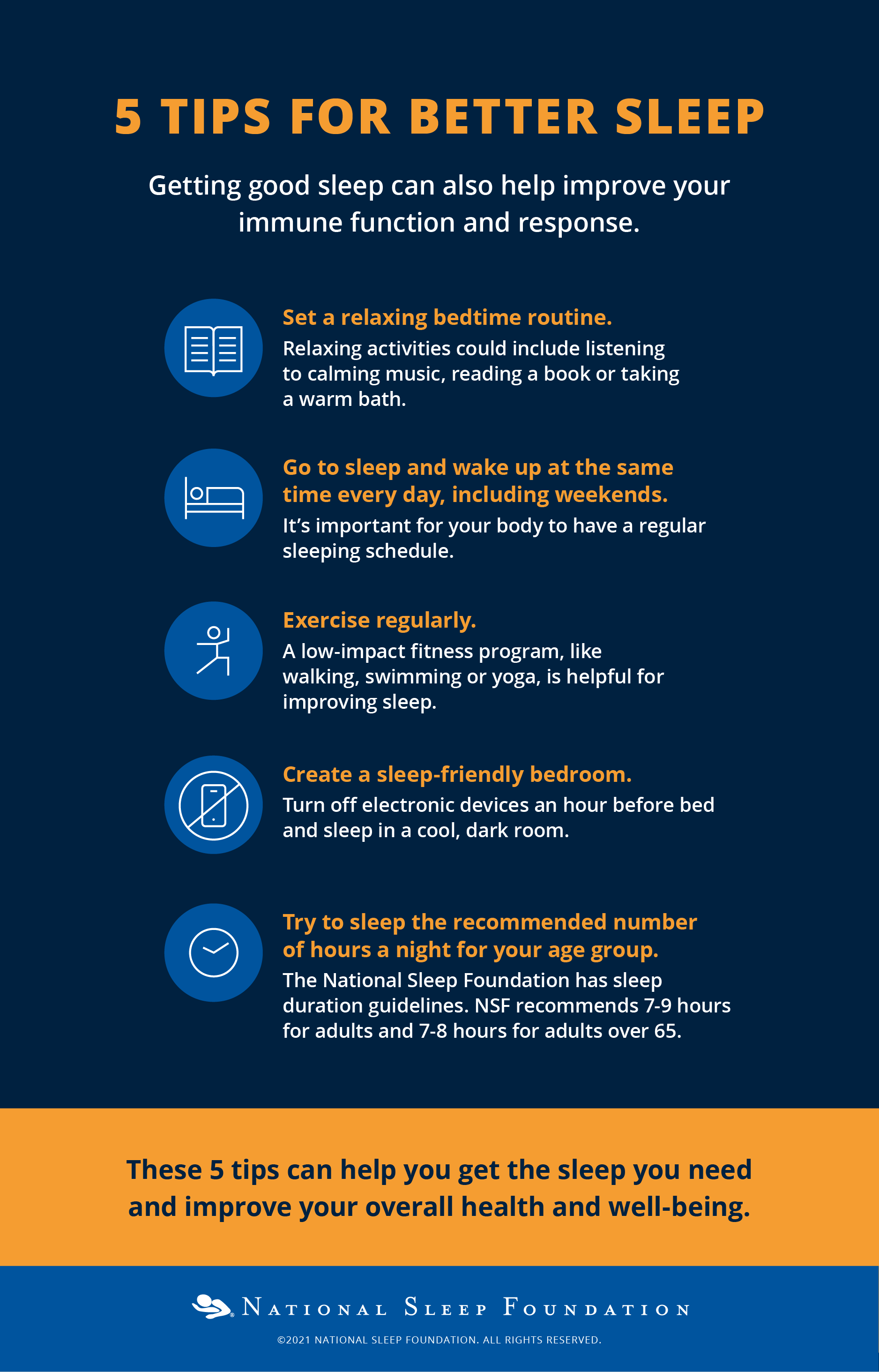Are you struggling to get a good night’s sleep? You might be overlooking a crucial factor: darkness.
In our modern world, where screens are everywhere and city lights shine brightly, it can be challenging to find true darkness. But did you know that your body needs darkness to rest deeply and recharge? Imagine waking up feeling refreshed and full of energy every day.
Understanding why darkness is essential for sleep might just be the game-changer you need. This article will reveal the secrets of how darkness affects your sleep quality and provide practical tips to transform your nighttime environment. Don’t miss out on the chance to unlock the restful sleep you’ve been dreaming of!

Credit: www.instagram.com
The Science Of Sleep
Understanding the science of sleep is crucial for achieving restorative rest. Sleep isn’t just about closing your eyes; it’s a complex biological process influenced by various factors. Darkness plays a pivotal role in signaling your body to sleep well. Let’s explore the inner workings of sleep and why darkness is essential.
Circadian Rhythms
Your circadian rhythm is like an internal clock that regulates your sleep-wake cycle. This natural cycle responds to light and darkness. Imagine waking up naturally with the sunrise and winding down as the sun sets. Your body uses these cues to determine when to be alert and when to rest.
Exposure to light at night disrupts this rhythm, making it harder to fall asleep. Consider the nights when you’ve stayed glued to your phone or laptop screen. It’s likely you found it challenging to doze off afterwards. Your body mistook the artificial light for daytime, throwing off your sleep schedule.
Role Of Melatonin
Melatonin is a hormone that helps regulate your sleep. It rises as darkness falls, preparing your body for sleep. Think of melatonin as nature’s sleep aid. It lowers your body temperature and relaxes you, paving the way for sleep.
When exposed to light, especially blue light from screens, melatonin production is inhibited. Have you ever wondered why you struggle to sleep after binge-watching your favorite series late at night? The light from your screen halts melatonin, keeping you awake.
Creating a dark environment can enhance melatonin production. Try dimming lights and shutting off screens an hour before bedtime. You’ll notice a difference in how quickly you fall asleep and the quality of your rest.
Why not challenge yourself to embrace darkness as part of your bedtime routine? Consider using blackout curtains or an eye mask. How might this simple change transform your sleep quality?

Credit: www.thensf.org
Impact Of Darkness On Sleep Quality
Darkness plays a crucial role in sleep quality. Many people underestimate this impact. Our bodies are wired to respond to light and darkness. This natural cycle affects how well we sleep. Let’s explore how darkness enhances sleep quality.
Darkness And Melatonin Production
Melatonin is a hormone that regulates sleep. Darkness triggers its production. When it gets dark, your brain produces more melatonin. This helps you feel sleepy and relaxed. Bright lights can interfere with melatonin production. Dim lighting supports better melatonin levels, promoting restful sleep.
Light Exposure And Sleep Disruption
Exposure to light at night disrupts sleep. Artificial light can confuse your brain. It signals that it’s time to be awake. This can delay sleep and reduce its quality. Blue light from screens is particularly disruptive. Limiting screen time before bed improves sleep. A dark room aids in achieving deep, restorative sleep.
Health Benefits Of Sleeping In Darkness
Sleeping in complete darkness offers numerous health benefits. Darkness triggers the production of melatonin, a hormone crucial for sleep. This hormone helps regulate the sleep-wake cycle. Without it, sleep quality can suffer. Creating a dark sleep environment can improve overall well-being.
Light exposure at night can disrupt your internal clock. This can lead to poor sleep quality and health issues. A dark room can help your body prepare for rest. It signals the brain that it’s time to wind down. This can lead to more restful sleep.
Improved Sleep Duration
A dark room can extend sleep duration. Melatonin production increases in darkness. This hormone promotes longer sleep periods. People often wake up less in dark environments. This can lead to more uninterrupted sleep.
Longer sleep helps with daily functioning. It boosts mood and cognitive performance. A well-rested body handles stress better. Sleeping longer can also improve physical health. It supports immune function and repairs tissues.
Enhanced Sleep Depth
Darkness enhances sleep depth. Deeper sleep is more restorative. It allows the body to repair and regenerate. Deep sleep strengthens memory and learning. It also helps with emotional regulation.
Light exposure can reduce deep sleep phases. This can lead to feeling tired despite long sleep. Ensuring a dark environment supports deep, restful sleep. It helps achieve a more rejuvenated feeling upon waking.

Credit: www.thensf.org
Creating A Dark Sleep Environment
Creating a dark sleep environment helps your body produce melatonin, essential for a restful night. Darkness signals your brain to relax, improving sleep quality and overall health. Ensure minimal light exposure for better sleep.
Creating a dark sleep environment is essential for quality rest. Darkness signals the brain to produce melatonin. Melatonin is the hormone that regulates sleep. A well-structured bedroom can enhance this process. Proper lighting, curtains, and removing tech distractions are crucial.Effective Bedroom Lighting
Choose soft, warm lights for your bedroom. Bright lights can disrupt melatonin production. Use bedside lamps with dimmers. This allows you to control the light intensity. Consider using smart bulbs. They can mimic natural light patterns. Avoid overhead lights close to bedtime.Use Of Blackout Curtains
Blackout curtains block outside light. They help create a dark sanctuary. This is vital for deep sleep. Choose curtains that fit snugly. Ensure no gaps let light in. Blackout curtains also reduce noise. This enhances the sleep environment further.Tech-free Zones
Electronics emit blue light. Blue light affects melatonin levels. Keep devices out of the bedroom. Create a tech-free zone for relaxation. Use an analog clock instead of a phone. This minimizes exposure to distracting lights. Focus on creating a serene space for sleep.Common Mistakes And Solutions
Many struggle with sleep due to common mistakes. Simple solutions can improve your rest. Let’s explore some issues and how to fix them.
Overuse Of Electronic Devices
Phones and tablets emit blue light. This light tricks your brain. It thinks it’s daytime. Melatonin production decreases. Sleep becomes difficult. Limit device use before bed. Try reading a book. Listen to calming music. These help prepare your mind for sleep.
Inadequate Window Coverings
Streetlights and moonlight enter your room. They disturb sleep. Curtains or blinds may not block all light. Invest in blackout curtains. They keep your room dark. You’ll sleep better. Cover any gaps around windows. This ensures a peaceful sleeping environment.
Lifestyle Changes For Better Sleep
Getting quality sleep can seem elusive in today’s busy world. Many struggle to find restful nights, often due to poor habits. Adopting simple lifestyle changes can help. These changes can make a big difference in your sleep quality.
Consistent Sleep Schedule
Our bodies thrive on routine. A consistent sleep schedule can enhance your sleep. Go to bed and wake up at the same time daily. This trains your body’s internal clock. It helps you fall asleep faster. It also ensures you wake up feeling refreshed.
Weekends are not an exception. Sticking to your routine on weekends benefits your body. It keeps your sleep cycle steady. Over time, your body will adjust. It will know when it’s time to rest.
Evening Routines
Evening routines prepare your mind for sleep. Limit screen time an hour before bed. Screens emit blue light. This can trick your brain into staying awake. Instead, read a book or listen to calming music.
Consider a warm bath or shower. It relaxes your muscles. It also signals your body that sleep is near. Keep your bedroom dark and cool. Darkness boosts melatonin production. This hormone regulates sleep. A cool room can also enhance sleep quality.
Try practicing relaxation techniques. Deep breathing or meditation can calm your mind. They reduce stress and anxiety. You can drift into sleep easily.
Darkness And Mental Health
Darkness plays a key role in mental health. Our bodies need darkness for restful sleep. It helps regulate mood and stress levels. Darkness signals the brain to produce melatonin. This hormone supports the sleep-wake cycle. Without darkness, melatonin production decreases, causing sleep issues. Poor sleep can affect mental health negatively.
Stress Reduction
Darkness helps reduce stress by calming the mind. It creates a peaceful environment for relaxation. In the absence of light, the brain releases calming chemicals. These chemicals lower stress hormones. A dark room signals that it is time to rest. This helps the body unwind after a long day.
Mood Stabilization
Proper darkness aids in mood stabilization. It helps maintain balanced emotions. Melatonin production in darkness supports a stable mood. Lack of sleep can lead to mood swings. Ensuring a dark sleep environment promotes emotional stability. This helps maintain a positive outlook.
Frequently Asked Questions
Why Is Darkness Important For Sleep?
Darkness signals the brain to produce melatonin, a hormone crucial for sleep. Melatonin regulates sleep-wake cycles, promoting restful sleep. Exposure to light can disrupt melatonin production, leading to sleep disturbances. Ensuring a dark environment helps maintain healthy sleep patterns, improving overall rest and well-being.
How Does Light Affect Sleep Quality?
Light exposure affects the body’s internal clock, impacting sleep quality. Blue light from screens can suppress melatonin production. This makes falling asleep harder. Minimizing light exposure before bedtime can enhance sleep quality, ensuring better rest and rejuvenation.
Can Artificial Lights Disrupt Sleep Patterns?
Yes, artificial lights can disrupt natural sleep patterns. They interfere with melatonin production, affecting sleep quality. Especially, blue light from devices can trick the brain into thinking it’s daytime. Reducing exposure to artificial light before bedtime can help maintain healthy sleep cycles.
What Are The Benefits Of A Dark Bedroom?
A dark bedroom promotes better sleep by enhancing melatonin production. It helps regulate sleep-wake cycles, leading to deeper, restorative sleep. Darkness can reduce sleep disturbances and improve overall sleep quality. Creating a sleep-friendly environment with minimal light exposure supports optimal rest.
Conclusion
Darkness plays a crucial role in ensuring restful sleep. It signals your brain to produce melatonin, the sleep hormone. This process helps regulate your sleep-wake cycle. Bright lights can disrupt this natural rhythm, leading to poor sleep quality. Simple changes can make a big difference.
Use blackout curtains or a sleep mask to block light. Create a bedtime routine that calms your mind. These steps encourage better sleep. Remember, a dark room supports your body’s natural sleep process. Prioritizing darkness for sleep can improve your overall well-being.
Sleep well, and feel refreshed each morning.

